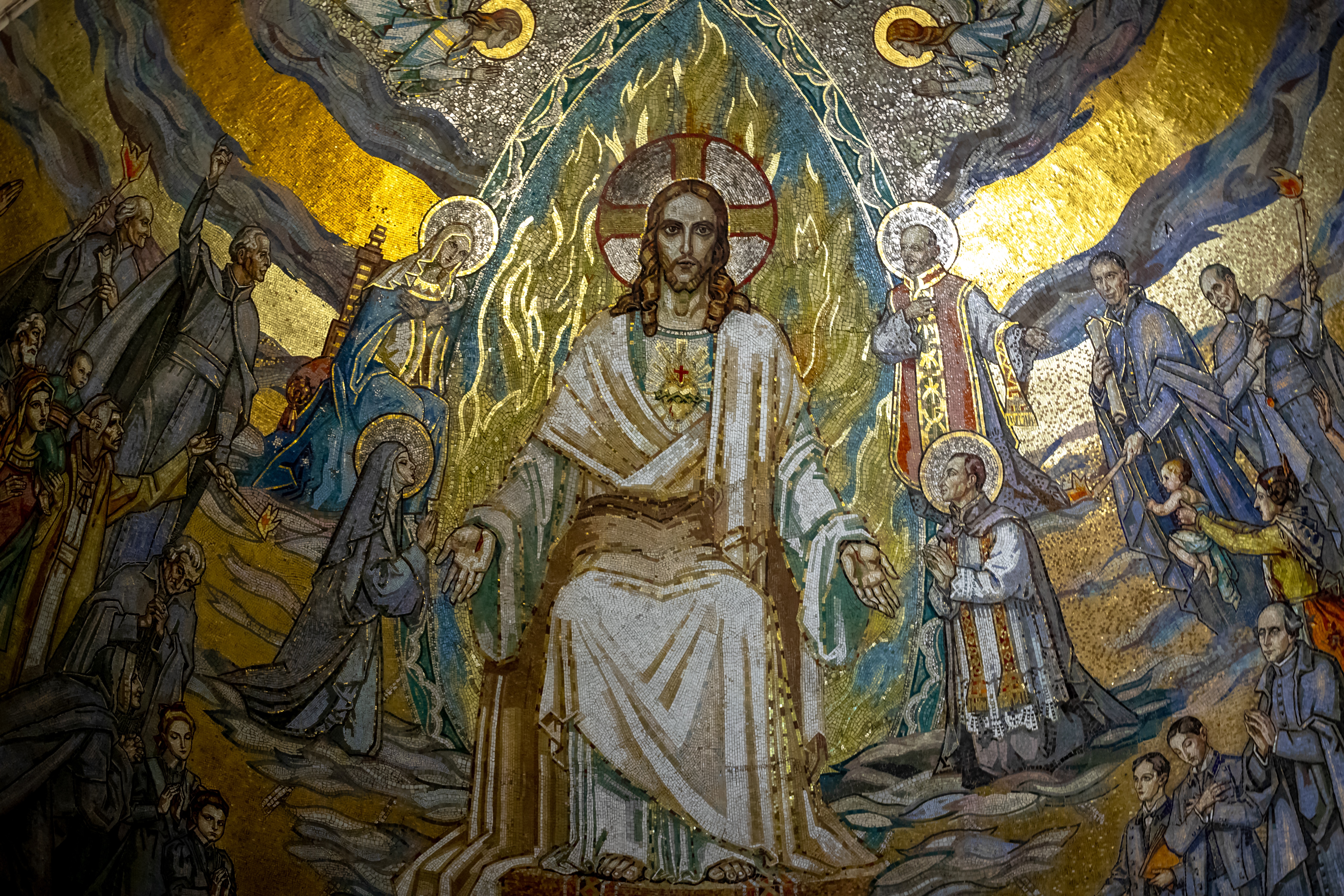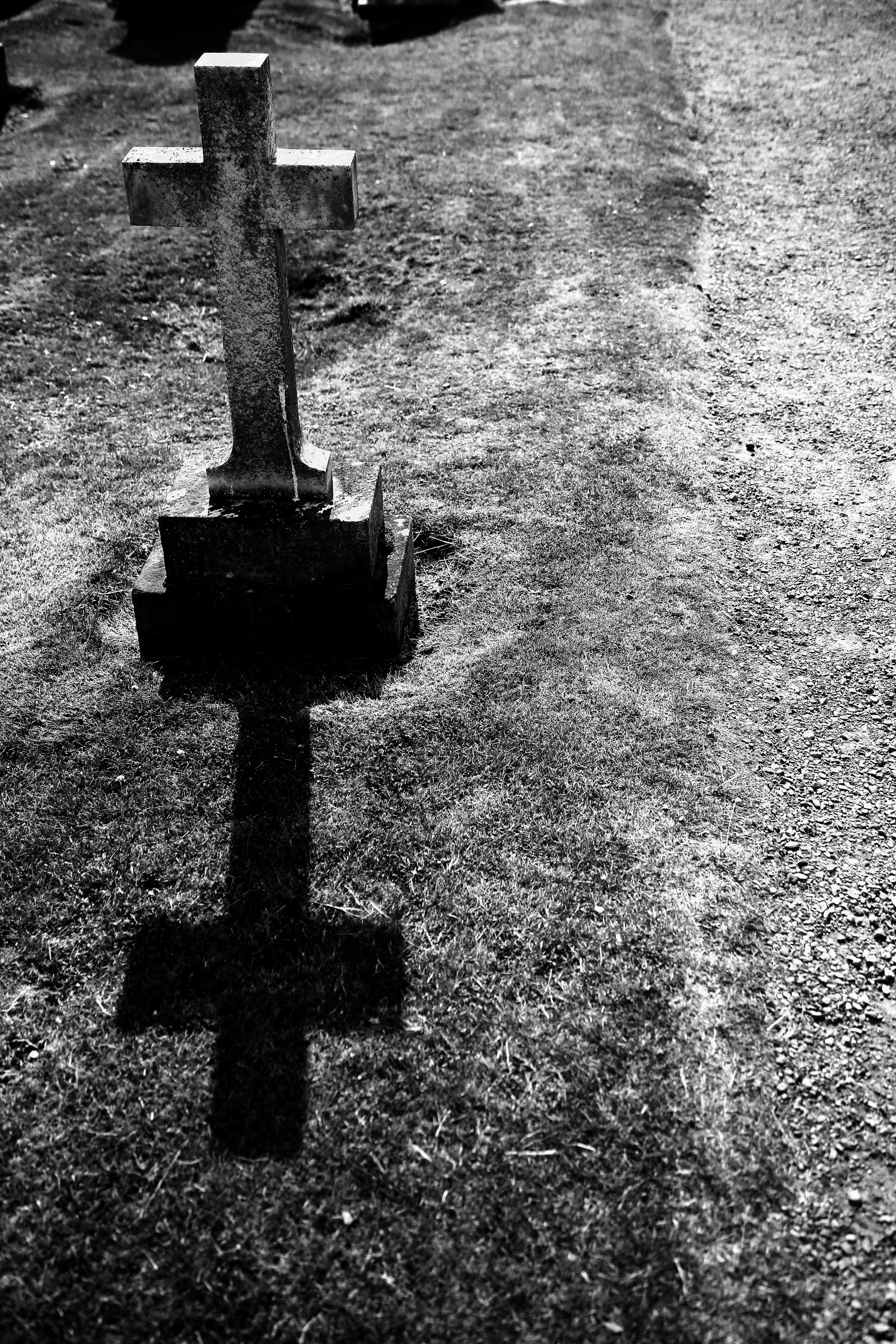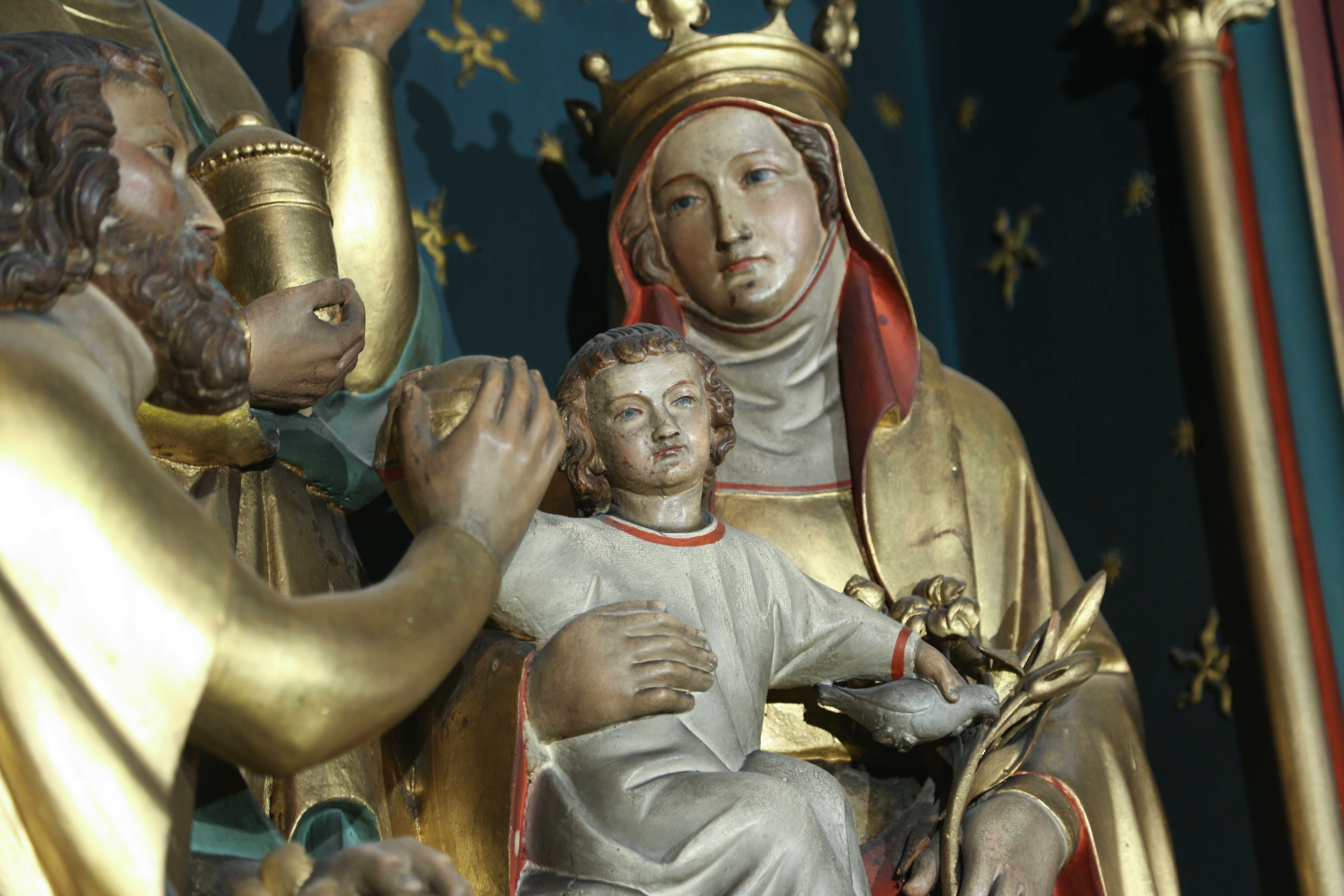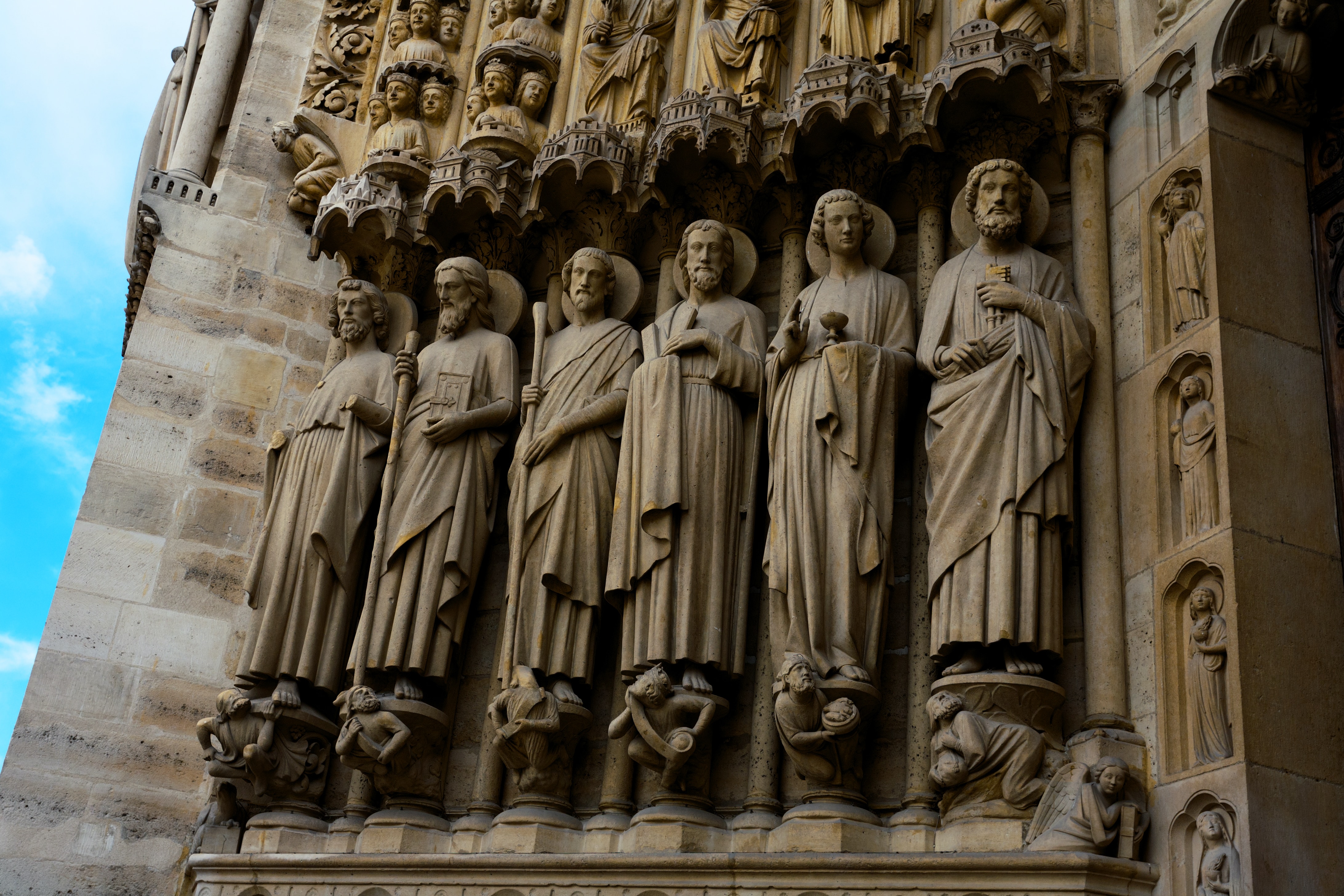“But early in the morning he arrived again in the temple area, and all the people started coming to him, and he sat down and taught them.” (John 8:2)
This may seem like a pretty simple verse from our Gospel today, but a little context into the traditions of the Ancient Near East certainly makes this verse pop. In this culture, it was customary for teachers to sit down while they were proclaiming the truth. All throughout Scripture this is made evident from the kings, to the Pharisees, to Jesus himself. Here we are being taught in an implicit way that Jesus is the Divine Teacher.
We can see this tradition of sitting while teaching also presented in art. If you look at the Catechism, you will find the picture of Jesus sitting down as a shepherd and teacher. Every single catechism has this catechetical image in it. There is a sheep that is looking intently at Jesus while he teaches. It is surrounded by a tree and Jesus is holding a shepherd’s staff and some panpipes.
So why am I bringing up all this imagery from the Catechism? This image is an icon, if you will, of how we should approach the faith. By looking at it, we can see deeper truths about who Jesus is and how we should respond. The tree brings us back to the tree of knowledge of good and evil in the garden where we lost grace. It also reminds us of the power of the cross when Christ climbs on a tree to die for our sins. The pan pipes are used by shepherds to call the sheep back into their arms. It is the same with the shepherd’s staff. They are specifically designed to be able to pull sheep back to safety.
Jesus also takes the posture of a teacher. The catechism takes this even further by saying that God has a divine pedagogy. Again, we need some context here. A pedagogue was someone who accompanied the kids to school and made sure that the lessons they learned there would be applied to their lives in the home. In other words, they were constantly teaching. Jesus as the good teacher is the same. The difference with Jesus is that he is always present to us. We might hear a good talk or Youtube video or podcast, but all of those things fade. Real conversion happens in the heart, where Jesus resides.
Struggling with a sin or a certain teaching of the Church? Jesus sits down to meet you at your level and bring you into his love. Find yourself lost? Jesus invites you to embrace the power of the cross. We can use these keys that we find in Scripture and the Catechism to realize that God is the Divine Teacher, always present to us and constantly calling us home.
From all of us here at Diocesan, God bless!
“[A]l amanecer se presentó de nuevo en el templo, donde la multitud se le acercaba; y él, sentado entre ellos, les enseñaba.” (Juan 8,2)
Este puede parecer un versículo bastante simple del Evangelio de hoy, pero un poco de contexto en las tradiciones del Antiguo Oriente Cercano ciertamente hace que este versículo destaque. En esta cultura, era costumbre que los maestros se sentaran mientras proclamaban la verdad. A lo largo de toda la Escritura esto se hace evidente, desde los reyes hasta los fariseos y el mismo Jesús. Aquí se nos enseña de manera implícita que Jesús es el Maestro Divino.
Podemos ver esta tradición de sentarse al enseñar también presente en el arte. Si miras el Catecismo, encontrarás la imagen de Jesús sentado como pastor y maestro. Cada catecismo tiene esta imagen catequética. Hay una oveja que mira fijamente a Jesús mientras enseña. Está rodeado por un árbol y Jesús sostiene un cayado de pastor y unos caramillos.
Bueno, ¿por qué menciono todas estas imágenes del Catecismo? Esta imagen es un ícono, por así decirlo, de cómo debemos abordar la fe. Al mirarlo, podemos ver verdades más profundas sobre quién es Jesús y cómo debemos responder. El árbol nos devuelve al árbol del conocimiento del bien y del mal en el jardín donde perdimos la gracia. También nos recuerda del poder de la cruz cuando Cristo sube a un árbol para morir por nuestros pecados. Los pastores utilizan los caramillos para llamar a las ovejas a sus brazos. Lo mismo ocurre con el cayado del pastor. Están diseñados específicamente para poder llevar a las ovejas a un lugar seguro.
Jesús también adopta la postura de un maestro. El catecismo va aún más lejos al decir que Dios tiene una pedagogía divina. Nuevamente, necesitamos algo de contexto aquí. Un pedagogo era alguien que acompañaba a los niños a la escuela y se aseguraba de que las lecciones que aprendían allí se aplicaran a sus vidas en el hogar. En otras palabras, estaban constantemente enseñando. Jesús, como buen maestro, es el mismo. La diferencia con Jesús es que él siempre está presente para nosotros. Es posible que escuchemos una buena charla, un vídeo de Youtube o un podcast, pero todas esas cosas se desvanecen. La verdadera conversión ocurre en el corazón, donde reside Jesús.
¿Luchando con un pecado o contra una cierta enseñanza de la Iglesia? Jesús se sienta para encontrarte a tu nivel y llevarte a su amor. ¿Te encuentras perdido? Jesús te invita a abrazar el poder de la cruz. Podemos usar estas claves que encontramos en las Escrituras y el Catecismo para darnos cuenta de que Dios es el Maestro Divino, siempre presente ante nosotros y constantemente llamándonos a casa.
De parte de todos nosotros aquí en Diocesano, ¡Dios los bendiga!

Tommy Shultz is a Business Development Representative for Diocesan. In this role he is committed to bringing the best software to dioceses and parishes while helping them evangelize on the digital continent. Tommy has worked in various diocese and parish roles since his graduation from Franciscan University with a Theology degree. He hopes to use his skills in evangelization, marketing, and communications, to serve the Church and bring the Good News to all. His favorite quote comes from St. John Paul II, who said, “A person is an entity of a sort to which the only proper and adequate way to relate is love.”
Feature Image Credit: Stephanie LeBlanc, unsplash.com/photos/sacred-heart-of-jesus-christ-z4LXu7NiII4












